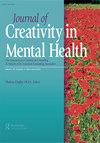儿童智力测验实践中的创造力:与发展相适应的反馈模式的经验
IF 0.8
Q4 PSYCHOLOGY, CLINICAL
引用次数: 0
摘要
本文章由计算机程序翻译,如有差异,请以英文原文为准。
Creativity in Child Assessment Practices: Experiences with a Developmentally-Appropriate Feedback Model
ABSTRACT Assessment is a foundational part of counseling practice, which includes providing assessment feedback to those evaluated. Though millions of children are assessed yearly, there has been little research surrounding providing assessment feedback with children. In this study, the authors qualitatively explored children’s experiences with a developmentally appropriate feedback model based in creativity, the Young Children’s Assessment Feedback (YCAF). Participants included ten 6 to 10-year old children, who completed a battery of psychoeducational assessments and the YCAF process. Data sources included session transcriptions, session observation notes, child interviews, parent interviews, and expressive arts observation notes. To explore the perceptions regarding the YCAF, the authors utilized interpretative phenomenological analysis to understand the children’s feedback experiences. Findings included the themes: freedom for self-direction, self-concept, therapeutic relationship, affective responses of child, systemic shifts, and developmental considerations. Children in this study reported a variety of benefits and experiences surrounding receiving their own personalized, developmentally appropriate assessment feedback.
求助全文
通过发布文献求助,成功后即可免费获取论文全文。
去求助
来源期刊

Journal of Creativity in Mental Health
PSYCHOLOGY, CLINICAL-
CiteScore
1.70
自引率
16.70%
发文量
18
期刊介绍:
The Journal of Creativity in Mental Health, the official journal of the Association for Creativity in Counseling, a division of the American Counseling Association, is the valuable interdisciplinary reference source for academics and therapeutic practitioners. This refereed journal examines the practical applications of using creativity to help deepen self-awareness and build healthy relationships. This journal also explores how creative, diverse, and relational therapeutic approaches can be used in counseling practice. Each issue of the Journal of Creativity in Mental Health provides a wide range of interdisciplinary discussion relative to diverse mental health issues.
 求助内容:
求助内容: 应助结果提醒方式:
应助结果提醒方式:


